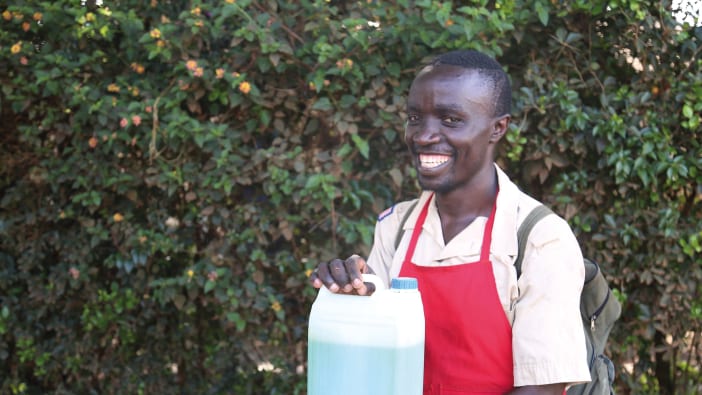By Dr Heather-Louise Williamson.
These two case studies illustrate how difficult it can be for doctors and health workers to put Dr Lankester’s advice into practice, when patients will not accept the advice they are given. Use these stories to help your patients, and others, to understand the points which Dr Lankester is making.
Tablets are no good to me!
Sebastian was 16 when I first saw him. He had been quite sick for a few days with malaria. “Not to worry,” I said, “we’ll soon have you feeling better, just take these tablets.” He looked at me a little strangely. “He wants an injection,” said the nurse. “But the tablets are all he needs,” I replied.
The next time I saw Sebastian he could hardly walk. He was very ill and could not sit down due to the large abscess on his bottom. He told me the story: He didn’t like the idea that just taking tablets would make him feel better. He wanted real medicine, by an injection, so he’d gone to the local clinic to get one.
But the injection had gone wrong. The needle was not clean and Sebastian had become infected by it.
He came in to stay in a bed in the hospital and gradually, over the next few days, he got better. When he left he said: “The next time I come, I’ll take the tablets. I’ve had enough injections.”
Medicine for all the Family
Praxides got up early, as the sun rose, to go to get water to make the meal. She had slept badly, as Awino had been coughing all night. Should she take her to the doctor? Perhaps he could help.
When she came back with the water, she lit the fire. She took some porridge to Awino but her cough was so bad she couldn’t eat. Praxides lifted Awino onto her back and walked in the heat until she reached the school, where she knew the Landrover from the hospital would come that afternoon. Perhaps they could help.
Soon the Landover arrived and the nurses looked at Awino. “Give her this medicine three times a day for the next five days,” said the nurse.
Praxides wondered if it would help, or would she have been better going to the medicine man in the village? But she tried the medicine. That night Awino’s cough was less and the next day her fever had gone. “This is good medicine,” Praxides thought. “Awino is better now, I’ll give the rest of the medicine to my other children – perhaps it will make them stronger.”
It did not seem to make any difference to the other children but two days later Awino’s cough and fever returned.
The Landover was not coming to the school again that month. Now Praxides would have to walk with Awino to the hospital to see the doctor.
The doctor told Praxides that the medicine was only for Awino and that she needed all of it. Now she would have to stay in hospital so that she could be made better. That meant that Praxides had to stay with her; her other children would have to look after each other. She would have to sell the goat to pay the bill. If only she had given Awino the medicine as the nurse had told her to!
Dr Williamson worked in Nangina Mission Hospital, West Kenya for two years. She is now a GP in Belfast.









